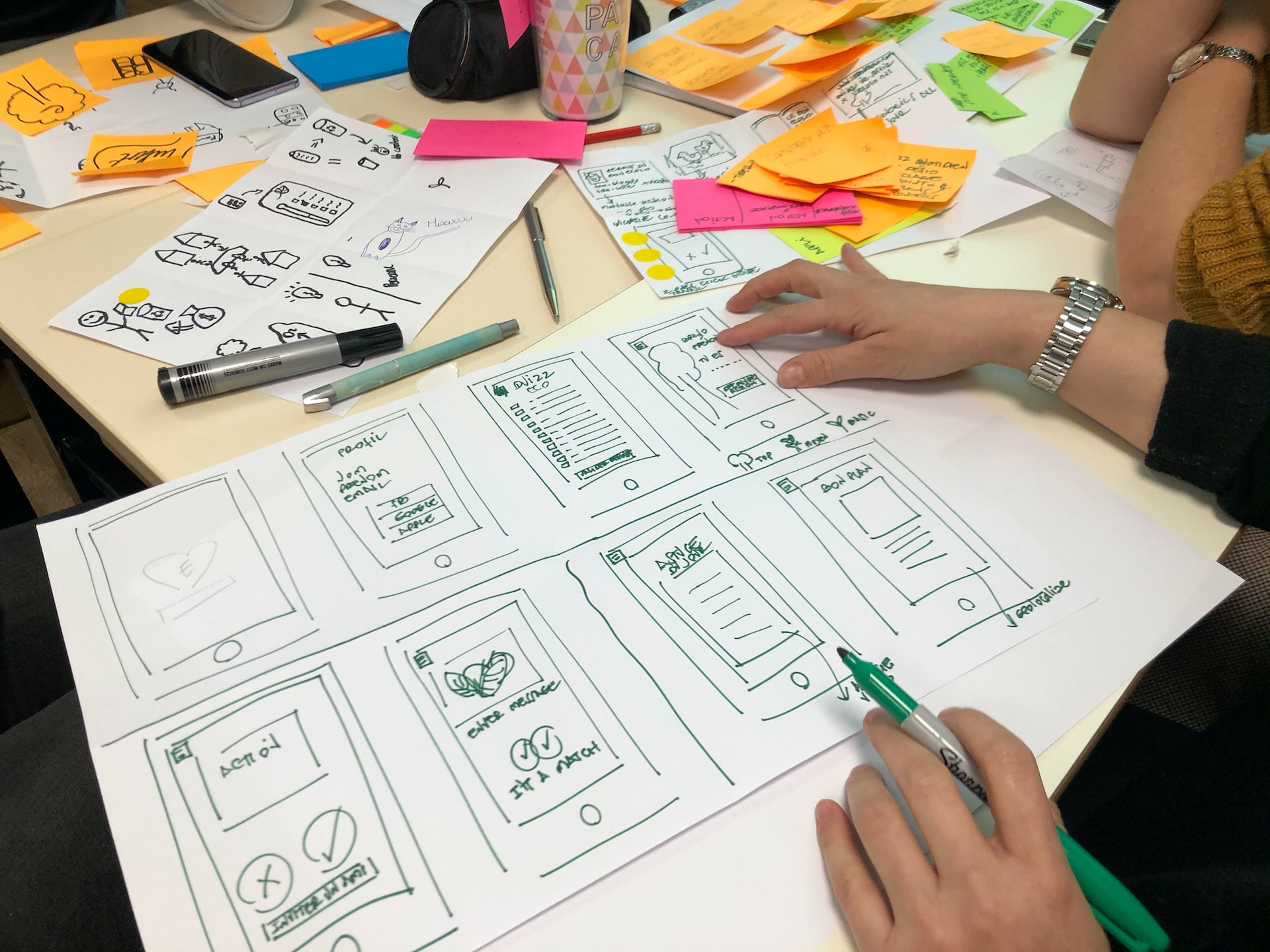We all know job interviews are a pivotal point in your career journey. While your resume offers an overview of your background, it’s the interview that provides an opportunity to show your potential employers who you truly are. And in this important moment, proper preparation can make the difference between receiving an offer and going back to job hunting. So as part of your preparation, it’s a good idea to keep the right questions in mind - not just the ones you’ll be asked, but the ones you need to ask yourself. To help you get ready, we’ve compiled a list of 40 useful questions that you definitely need to review to prepare for your next big interview.
1. What is the company's mission and values?
Dive deep into studying the company’s mission statement, core values, and objectives. Familiarizing yourself with these will demonstrate that you’re invested in the company’s success. Knowing the company’s values will also help you structure your responses around what the organization believes is important, giving you a chance to showcase your compatibility.
 Photo by Charlie Firth on Unsplash
Photo by Charlie Firth on Unsplash
2. Why am I a good fit for this position?
Reflect on your personal skills, experiences, and qualifications before the interview, reflecting on how they align with the job description. Understanding what value you can bring to the company will allow you to confidently explain why you’re the best candidate for the role.
 Photo by Austin Distel on Unsplash
Photo by Austin Distel on Unsplash
3. What are the key challenges in this role?
Anticipating and asking about the potential hurdles of the position displays initiative on your part. It prepares you to demonstrate problem-solving skills and forward-thinking, proving to your interviewer that you’re ready to tackle any challenges head-on. After all, great problem-solving skills are a highly sought-after trait in any employee.
 Photo by Jukan Tateisi on Unsplash
Photo by Jukan Tateisi on Unsplash
4. Who are the company's competitors?
Reviewing this question is more about demonstrating your industry knowledge. By identifying the company’s competitors, you can better articulate how your potential contributions might help the company stay ahead or how you might be able to provide innovative solutions and approaches in the field.
 Photo by Austin Distel on Unsplash
Photo by Austin Distel on Unsplash
5. How does the company measure success for this role?
It’s important that you get a good grasp of how success is evaluated at the company as it will give you a clear direction from the start. By addressing these metrics in the interview, you can show your commitment to meeting and surpassing these expectations. It also shows that you understand what they’re looking for in the ideal employee.
 Photo by bruce mars on Unsplash
Photo by bruce mars on Unsplash
6. What are my potential growth opportunities here?
Don’t forget that your career is all about your personal growth too. Exploring growth avenues signifies not only your ambition and motivation, but also long-term commitment. You want to demonstrate to the employer that you’re not just looking for a temporary job, but a career. This can really set you apart from other candidates.
 Photo by Jeremy Bishop on Unsplash
Photo by Jeremy Bishop on Unsplash
7. How do I describe my work style?
Always reflect on your own strengths and weaknesses before entering an interview. Understand things like your work habits, strengths, and potential areas for improvement. This introspection allows you to present yourself authentically and ensures your next potential work environment aligns with your style.
 Photo by Christina @ wocintechchat.com on Unsplash
Photo by Christina @ wocintechchat.com on Unsplash
8. What questions do I have for the interviewer?
Remember, once you’re finished being interviewed, it’s your turn to ask questions! Prepare a few thoughtful questions to ask at the end of the interview; this shows your genuine interest in the position, and it’ll also provide further insight into the company culture and expectations. It gives you the opportunity to know what you’re getting into.
 Photo by Van Tay Media on Unsplash
Photo by Van Tay Media on Unsplash
9. What are some recent company achievements or news?
When you get the chance, ask about recent company achievements. Familiarizing yourself with the latest company updates benefits you in two ways: referencing these in conversation exhibits your keen interest in the company’s growth and your desire to be a part of its future.
 Photo by Andre Hunter on Unsplash
Photo by Andre Hunter on Unsplash
10. How can I add value beyond the job description?
Contemplate the additional skills or experiences you bring to the table. Offering more than what’s expected can position you as a standout candidate, showing potential employers that you're not just meeting standards, but elevating them. It's really just about selling yourself and all the wonderful abilities that you possess.
 Photo by Campaign Creators on Unsplash
Photo by Campaign Creators on Unsplash
11. How does this role align with my long-term career goals?
Think about where you envision yourself in 5 or 10 years. By ensuring this job acts as a stepping stone towards your broader aspirations, you can make decisions rooted in long-term growth. Furthermore, interviewers often appreciate candidates who have a vision for their future and see the company as part of that journey.
 Photo by Markus Winkler on Unsplash
Photo by Markus Winkler on Unsplash
12. What is the company's approach to innovation and change?
Companies evolve, and the ability to adapt is crucial. Understanding a company's stance on innovation can help you determine if you'll be working in a stagnant environment or one that encourages creativity and forward-thinking. This also enables you to align your responses with the company's desire for innovative ideas.
13. How does the company promote diversity and inclusion?
In today's globalized world, diverse perspectives drive creativity and success. Researching the company's policies and initiatives surrounding diversity will show your commitment to inclusive values and may help you better understand the company culture. You want to work for a company that is working towards improvement and inclusivity.
 Photo by Christina @ wocintechchat.com on Unsplash
Photo by Christina @ wocintechchat.com on Unsplash
14. What is the work-life balance like for employees?
While work is certainly important, it’s essential that you ensure you’re stepping into a role where you can maintain a healthy work-life balance. Knowing what to expect and discussing this during the interview can help you establish boundaries early, all while understanding company expectations. Find a position that works best for your lifestyle!
 Photo by Nadin Mario on Unsplash
Photo by Nadin Mario on Unsplash
15. How has the company responded to recent challenges or crises?
One great way to get a good read on a company is by asking how they dealt with recent challenges. A company’s response to adversity speaks volumes about its values, resilience, and leadership. Researching this can equip you with the right discussion points, showing that you’re considering the broader organizational landscape and not just the role in isolation.
 Photo by GR Stocks on Unsplash
Photo by GR Stocks on Unsplash
16. How does the company invest in employee development?
This question highlights your commitment to growth and learning. Companies that invest in employee development tend to have more engaged and loyal employees. This research will also give you insights into potential growth opportunities that you would want.
 Photo by Patrick Perkins on Unsplash
Photo by Patrick Perkins on Unsplash
17. What feedback do current and past employees have about the company?
Sometimes, reading a simple review can give you a good idea of what to expect. Platforms like Glassdoor and Indeed can offer you insights from previous or current employees. This research will help you understand the company from the inside out, give you another perspective, and can prepare you for any potential red flags or points of discussion during the interview.
18. What technological tools or platforms does the company use?
This question is more of a bonus, but familiarity with tools and technologies relevant to your role can be beneficial. If you’re aware of the platforms they use, you can brush up on them and showcase your adaptability and preparedness.
 Photo by ThisisEngineering RAEng on Unsplash
Photo by ThisisEngineering RAEng on Unsplash
19. What is the company's stance on sustainability and corporate responsibility?
Many companies today have shifted their focus to emphasizing sustainability and giving back. If this is especially important for you, you should take the opportunity to ask about it during the interview. Understanding these initiatives not only provides talking points, but you can see if your personal values align with those of the organization.
 Photo by Nick Fewings on Unsplash
Photo by Nick Fewings on Unsplash
20. What differentiates this company from others in the same sector?
What’s special about this company? What makes it unique? This could be in terms of products, services, work culture, or any other factors that are of importance to you. Emphasizing these points during the interview can show the employer that you’re not just looking for any job, but are genuinely interested in what this particular company can offer you.
 Photo by Floriane Vita on Unsplash
Photo by Floriane Vita on Unsplash
21. What is the company's stance on continuous learning and upskilling?
In a rapidly evolving world, continuous learning is crucial for staying relevant. Investigate if the company encourages its employees to pursue further education or certifications. Your interest in this area reflects a growth mindset, positioning you as someone who is keen to evolve with the company and the industry.
 Photo by Thought Catalog on Unsplash
Photo by Thought Catalog on Unsplash
22. How is team collaboration facilitated?
A company’s approach to collaboration can deeply affect daily work experiences. By understanding if they value cross-departmental projects, regular team meetings, or use specific collaborative tools, you can gauge how seamlessly you might integrate into their processes. Discussing this in the interview showcases your team spirit and adaptability. Besides, every employer wants a team player in their next hire.
 Photo by Cherrydeck on Unsplash
Photo by Cherrydeck on Unsplash
23. What opportunities exist for global or cross-functional exposure?
Globalization has interconnected markets more than ever before. Determine if the company provides opportunities to interact with international teams or work across different functions. Expressing an interest in these experiences can highlight your versatility and willingness to gain a holistic view of the company.
 Photo by Fernando @cferdophotography on Unsplash
Photo by Fernando @cferdophotography on Unsplash
24. How is performance typically reviewed and rewarded?
Understanding performance appraisal methods, feedback frequency, and reward systems can give insight into company culture and expectations. By discussing this, you underline your drive to excel and your interest in personal growth within the organization. You also deserve to work for a company that recognizes your hard work and contributions.
 Photo by Towfiqu barbhuiya on Unsplash
Photo by Towfiqu barbhuiya on Unsplash
25. What is the company’s policy on remote work and flexibility?
Especially relevant in today’s dynamic work environment, sometimes flexible remote work can be the dealbreaker. Understanding a company’s stance on remote work can help you set initial expectations, ensuring that your preferred work style matches the company’s policies. This question also shows you have a proactive approach to balancing productivity and work-life integration.  Photo by Sigmund on Unsplash
Photo by Sigmund on Unsplash
26. How does the company engage with the local community?
Community engagement often reflects a company’s values and social responsibility. Identifying any local initiatives or charity work can provide a broader perspective on the company’s ethos. Demonstrating knowledge of, or enthusiasm for, these endeavors shows your alignment with the company’s larger mission.
 Photo by Katt Yukawa on Unsplash
Photo by Katt Yukawa on Unsplash
27. What is the onboarding process like for new hires?
Getting a sense of the company’s onboarding procedures can help you visualize your first initial months there. Will you be getting the training you need? Who will be your supervisor? Addressing this during the interview demonstrates your eagerness to hit the ground running and make a quick and powerful impact.
 Photo by John Schnobrich on Unsplash
Photo by John Schnobrich on Unsplash
28. How does the company address and prioritize employee well-being?
A focus on well-being is becoming increasingly central in progressive workplaces. Discovering if the company offers health programs, mental health support, or regular breaks is essential for your long-term satisfaction and productivity. It’s important that you get the care and support you need while working for a company.
 Photo by Emily Underworld on Unsplash
Photo by Emily Underworld on Unsplash
29. How does the company handle feedback and ideas from employees?
A company that is receptive to feedback often has a more inclusive and innovative culture. Knowing how they solicit and handle suggestions can give you a sense of their openness to change and improvement. On the other hand, expressing interest in this process also showcases your proactive nature and desire to contribute meaningfully.
 Photo by AbsolutVision on Unsplash
Photo by AbsolutVision on Unsplash
30. What are some significant upcoming projects or expansions for the company?
Exploring the company’s future plans and developments can give you a clear picture of what to expect from its growth trajectory and stability. Demonstrating knowledge of, and enthusiasm for, these projects during the interview is a great way to represent your commitment to being a part of this future.
 Photo by Octavian Dan on Unsplash
Photo by Octavian Dan on Unsplash
31. How does the company encourage creativity and out-of-the-box thinking?
In an ever-evolving business landscape, creativity can be a game-changer. Determine how the company fosters a culture of innovation. By broaching this subject in an interview, you show that you are not content with maintaining the status quo and are eager to bring fresh insights to the table. But not just that, it’s important to make sure they care about your opinions too.
 Photo by Amélie Mourichon on Unsplash
Photo by Amélie Mourichon on Unsplash
32. How has the company adapted to recent industry trends and disruptions?
The world is everchanging and the effect it can have on various fields can be swift. Understanding how a company has navigated recent shifts gives you insight into its management regarding agility and foresight. Providing knowledge of these adaptations suggest that you’re a candidate who understands industry dynamics and can be instrumental in future transitions.  Photo by Christina @ wocintechchat.com on Unsplash
Photo by Christina @ wocintechchat.com on Unsplash
33. What are the core leadership principles emphasized within the organization?
Leadership values can significantly shape a company's culture. Ascertain what leadership qualities the organization values, as this can help you gauge your alignment with potential managerial styles. Discussing this exhibits your aspiration to be a leader, regardless of your current career stage.
 Photo by Brooke Lark on Unsplash
Photo by Brooke Lark on Unsplash
34. What is the company’s approach towards ethical decision-making?
Ethical considerations are paramount in today's business world. Grasping the company's stance on ethics ensures you're entering a workplace that aligns with your principles. This conversation can highlight your integrity and commitment to doing business the right way.
35. How does the company incorporate feedback from its customers or clients?
Customer-centric businesses tend to be more successful in today's market. Understanding how feedback is gathered and actioned can give you insights into the company's commitment to continuous improvement. Expressing interest in this shows your dedication to customer satisfaction.
 Photo by Jason Goodman on Unsplash
Photo by Jason Goodman on Unsplash
36. What technologies or innovations is the company currently exploring?
Delve into any tech or innovative methodologies the company is researching or implementing. Displaying curiosity about this signals that you're tech-savvy and keen on driving efficiency and innovation. It also demonstrates that the company is “trendy” and cares about keeping up to date with the newest inventions.
 Photo by Christina @ wocintechchat.com on
Photo by Christina @ wocintechchat.com on
37. What mentorship or guidance programs are available to employees?
Mentorship can significantly impact professional growth. It's a great way for you to ask any questions or seek advice from someone you trust and admire. Inquiring about these programs also demonstrates your eagerness to learn and grow under seasoned professionals within the company.
 Photo by Desola Lanre-Ologun on Unsplash
Photo by Desola Lanre-Ologun on Unsplash
38. How does the company handle conflict resolution?
Conflicts are inevitable in any workplace. Recognizing the company's methods for handling disagreements or issues can offer a window into its culture and communication channels. Addressing this underscores your maturity and readiness to work collaboratively.
 Photo by TienDat Nguyen on Unsplash
Photo by TienDat Nguyen on Unsplash
39. What is the company's approach to risk-taking?
Understanding the company's openness to risk-taking can help align your initiatives and suggestions accordingly. Discussing this in the interview shows that you're strategic in your decision-making, balancing innovation with prudence.
 Photo by Gabrielle Henderson on Unsplash
Photo by Gabrielle Henderson on Unsplash
40. How does the company celebrate successes and milestones?
Celebrations can be indicative of a company's culture and its appreciation for its employees. Knowing this not only sets expectations but also demonstrates your interest in being an integral part of a cohesive team that celebrates together.
 Photo by Guille Álvarez on Unsplash
Photo by Guille Álvarez on Unsplash
We want you to succeed in your job interviews, and with this list of 40 preparatory questions, you’ll feel confident in no time. Each question gives you an opportunity to reflect on your personal values, goals, and work preferences. Just review these points over and over before your next interview, and you’ll be ready to go!








